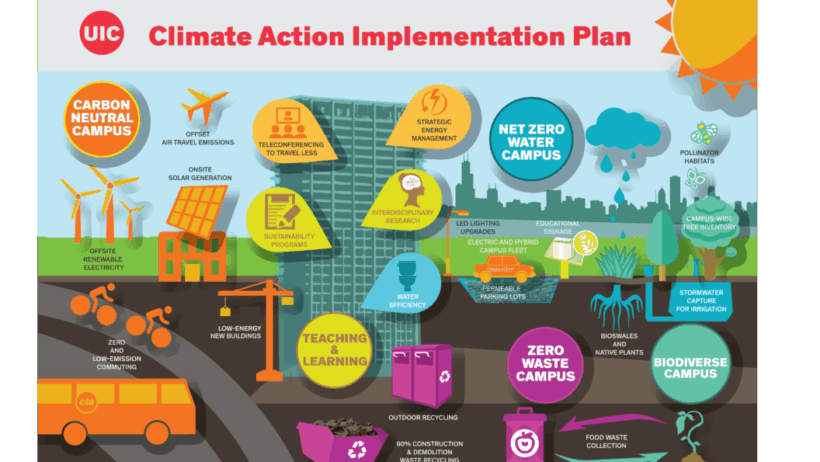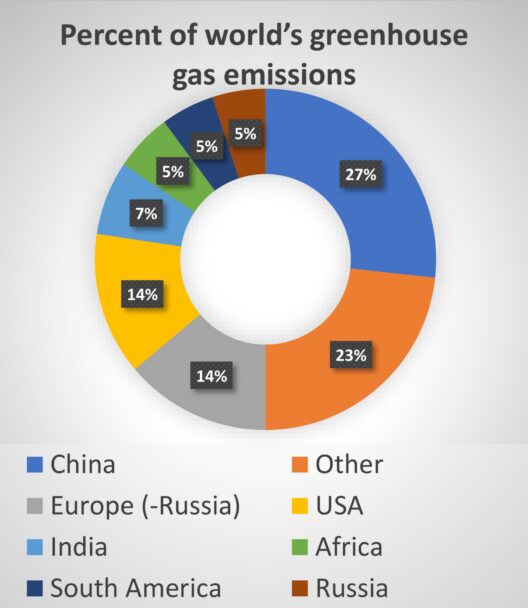Climate change is an undeniable reality that we must confront, and while the challenge seems daunting, there are myriad ways we can combat this global crisis collectively. Have you ever pondered how small individual actions can coalesce into a monumental force for change? What if every person on this planet devoted themselves to a shared mission? Here are ten powerful strategies we can adopt together to halt climate change and safeguard our planet for future generations.
1. Transition to Renewable Energy
One of the most formidable methods to curb greenhouse gas emissions is to transition to renewable energy sources. This includes harnessing solar, wind, hydroelectric, and geothermal power. By investing in community solar projects or advocating for policies that promote renewable energy incentives, we can dismantle the reliance on fossil fuels that drive climate change. Imagine if our homes, offices, and cities were entirely powered by clean energies. The resultant reduction in carbon footprints would be staggering.
2. Embrace Sustainable Transportation
Transportation is a major contributor to carbon emissions. A global transition to sustainable modes of transport can dramatically ameliorate the situation. This includes adopting electric vehicles, investing in public transportation systems, and promoting cycling and walking. Have you considered how different your commute could be if everyone shifted to greener choices? Imagine bustling cities where pollution is replaced by clean air, vibrant sidewalks, and an invigorated community.
3. Implement Energy Efficiency Measures
Enhancing energy efficiency in homes and industries is a malleable approach that yields significant results. Simple measures, such as switching to LED lighting, improving insulation, and utilizing energy-efficient appliances, can substantially diminish energy consumption. What if we asked ourselves: how can we waste less? Each household that reduces energy usage contributes to a collective change, lessening the strain on natural resources.
4. Advocate for Climate-Conscious Policies
Policy advocacy is an indispensable tool in the fight against climate change. By encouraging local and national leaders to prioritize climate action through legislation, we can influence systemic change. This means supporting policies that incorporate carbon pricing, deforestation reduction, and investment in sustainable infrastructure. Are you ready to lend your voice to the legislative arena? Together, we can forge a path toward accountability and responsibility.
5. Foster a Circular Economy
Transitioning from a linear economy, which is based on a ‘take, make, dispose’ model, to a circular economy can significantly reduce waste and conserve resources. This involves re-thinking product design, encouraging recycling, and supporting businesses that adhere to sustainable practices. What’s stopping us from being part of this transformative movement? Collective participation in conscientious consumption can reshape our economic fabric, benefitting both society and the planet.
6. Support Local and Sustainable Agriculture
Our food systems play a critical role in climate health. By supporting local and sustainable agriculture, we can reduce carbon emissions associated with food transport and promote biodiversity. Additionally, we can advocate for practices that reduce the environmental impact of farming, such as regenerative agriculture. Ask yourself: how can we diversify our diets while bolstering our local economies? Each local purchase creates ripples of positive change.
7. Educate and Engage the Community
Knowledge is power, and education is a critical component in the battle against climate change. Engaging community discussions, workshops, and educational programs can raise awareness of the climate crisis and potential solutions. What if everyone became an advocate for sustainable practices in their immediate circles? Informing others leads to a ripple effect of awareness and action that can extend far beyond our communities.
8. Promote Biodiversity and Conservation
Biodiversity is vital for ecosystem health, so promoting conservation initiatives is crucial for maintaining resilience against climate change. Supporting protected areas, reforestation projects, and wildlife preservation efforts can help mitigate biodiversity loss. Why not participate in local conservation activities, whether they are clean-up programs or tree-planting events? Every little effort contributes to a more balanced ecosystem.
9. Reduce Water Waste
Water is a precious resource, yet it is often taken for granted. By adopting water-saving practices—such as fixing leaks, installing low-flow fixtures, and using water-efficient appliances—we can significantly alleviate the stress on our water systems. Have you calculated your water usage lately? Small shifts in daily habits can lead to larger collective reductions in waste, ultimately sparking a more sustainable relationship with this vital resource.
10. Cultivate a Sustainable Mindset
A shift in mindset is essential to achieving viable long-term solutions for climate change. Cultivating sustainability as a core value encourages individuals to think critically about their actions and fosters a culture of responsibility and respect for the environment. What if adopting a sustainable mindset became as infectious as any trend? This cultural shift could convert passive awareness into active participation, galvanizing widespread engagement.
In conclusion, addressing climate change requires a multifaceted approach, and by working together, we can effectuate meaningful change. Each of us has a role to play, and by embracing these ten powerful strategies, we can contribute to the global push for a sustainable future. So, how will you choose to make a difference today? The challenge is set before us, and the time to act is now.








